Some of the self-driving sector’s leading simulation tech vendors will be exhibiting their latest innovations at the Stuttgart Messe on June 21, 22 and 23, 2022, at ADAS & Autonomous Vehicle Technology Expo 2022.
The free-to-attend exhibition will showcase solutions ranging from ADAS to full autonomy, including advanced technologies essential for AV development, such as AI learning, sensors and the latest autonomous test and validation systems, including the state of the art in simulation and synthetic data. The exhibition hall is expected to feature around 85+ specialist exhibitors, handpicked for their pioneering ADAS and AV expertise. Leading simulation software providers include AVL, Siemens and Applied Intuition.
For maximum convenience, the event is co-located with the adjacent Automotive Testing Expo (the world’s largest vehicle test and development technologies exhibition), featuring more than 350 exhibitors, where visitors can see countless more AV and ADAS validation systems and services.
Synthetic sensor data platform for machine learning
Representatives from Applied Intuition will be on hand at the expo to share more about the company’s research on effective applications of synthetic training data. Applied Intuition’s synthetic sensor data platform empowers machine learning (ML) and perception engineers to obtain the exact training data they need without the complexity or cost of data collection and labeling.
The quantity and quality of training data determine the performance of ML models used by autonomous systems. Unfortunately, data collection is hindered by operational costs and the difficulty of observing rare events, and data annotation is limited by the cost and accuracy of manual labeling. Some dense annotations, such as depth, semantic segmentation and optical flow, are impractical to obtain at scale. Collectively, the downsides of real labeled data reduce the velocity of autonomy programs, increase their overhead and limit the robustness of vehicles to edge cases.
With synthetic data sets, ML engineers simply specify the classes, environments and sensors they want to be represented in their data set and receive synthetic training data in return. Synthetic data is programmatically annotated, saving the cost, delay and inaccuracy of manual labeling.
At their core, synthetic data sets leverage the physics-based sensor and world models utilized by Applied Intuition’s sensor simulator, Spectral. This technology minimizes the domain gap between the synthetic data and the task domain by modeling the exact sensors the ML model is deployed on and the environment it will be deployed in.
In addition to the core functionality offered by Spectral, synthetic data sets automate the generation of diverse, realistic scenes to enable rapid data set definition. Smart behaviors enable actors such as cars and pedestrians to realistically interact with the world without any manual path specification. When required, default class, environment and event distributions can be overridden to provide exhaustive control over data set contents.
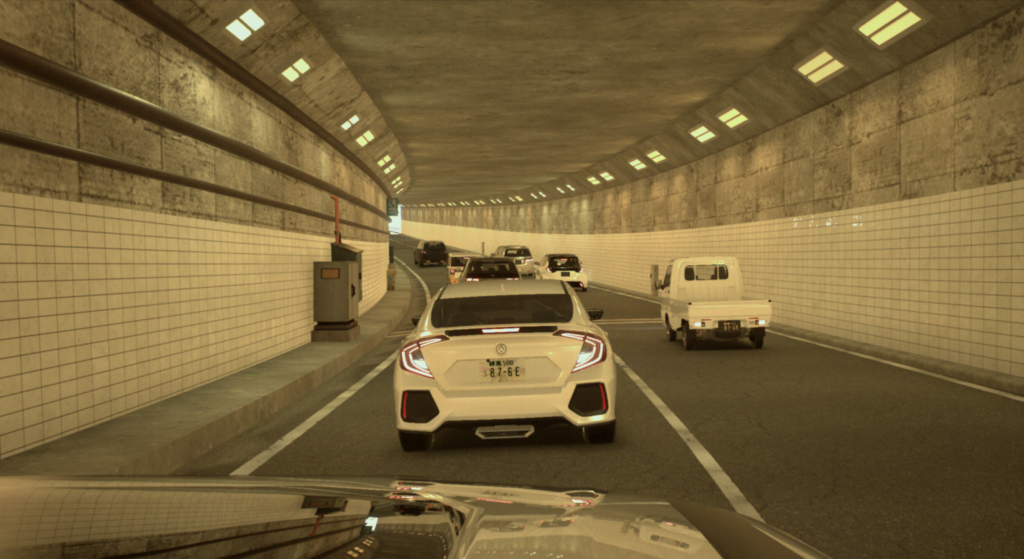
Visualization and sensor realism for virtual test drives
In Stuttgart, dSPACE will be presenting Aurelion, its new solution for sensor-realistic simulation, which integrates high-quality visualization and realistic sensors into processes for developing and validating driving functions.
Aurelion allows for precise sensor environment simulation, offers models for different sensor types and is suitable for a wide range of use cases and configurations. It can be used throughout various phases of development, for example, in hardware-in-the-loop (HIL) tests, software-in-the-loop (SIL) tests and even parallel validation in the cloud.
The 3D rendering engine, high-precision simulation models, realistic 3D assets and high-resolution material information enable the accurate simulation of automotive sensors and environments under different weather and lighting conditions. The new solution combines numerous features in a single product, allowing customers to integrate third-party sensor models; Linux and Docker support will soon be offered. The system can be integrated with many other dSPACE tools, such as ASM, VEOS, RTMaps, the Environment Sensor Interface (ESI) Unit and the upcoming Simphera software.
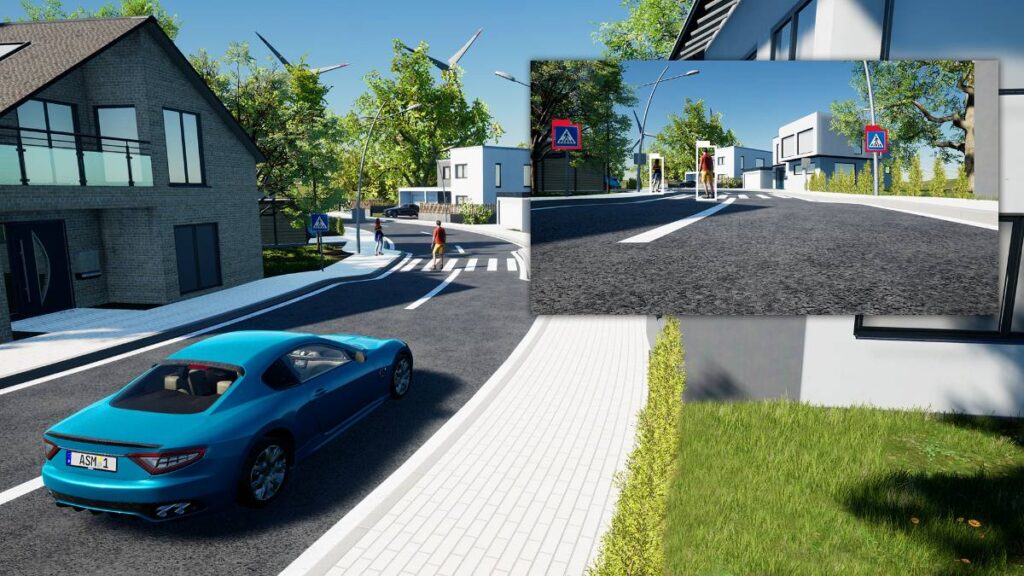
Compact aVDS static driving simulator
AB Dynamics will be at the show to present its new compact aVDS static driving simulator, which uses key componentry and software from its previous dynamic aVDS, but packaged in a more compact, easy-to-install and portable format. Like its dynamic counterpart, it is compatible with common third-party simulator software and works with most vehicle, steering, tire and sensor model types. Virtual content from rFpro is provided as standard.
The static simulator can be used across a breadth of applications, including vehicle dynamics, ADAS and autonomous systems, durability, hardware-in-the-loop, software-in-the-loop and driver monitoring.
Flexibility is key: there are a wide range of display, haptic feedback and packaging options to suit the user’s application. Display options include a single monitor, triple monitor, projector and VR headset. For greater driver immersion, haptic feedback choices include active steering, seat and brake pedal.
The aVDS static simulator can be supplied as an all-in-one unit with integrated chassis, driver console and seat, incorporated into a generic cockpit, OEM cockpit or full vehicle.
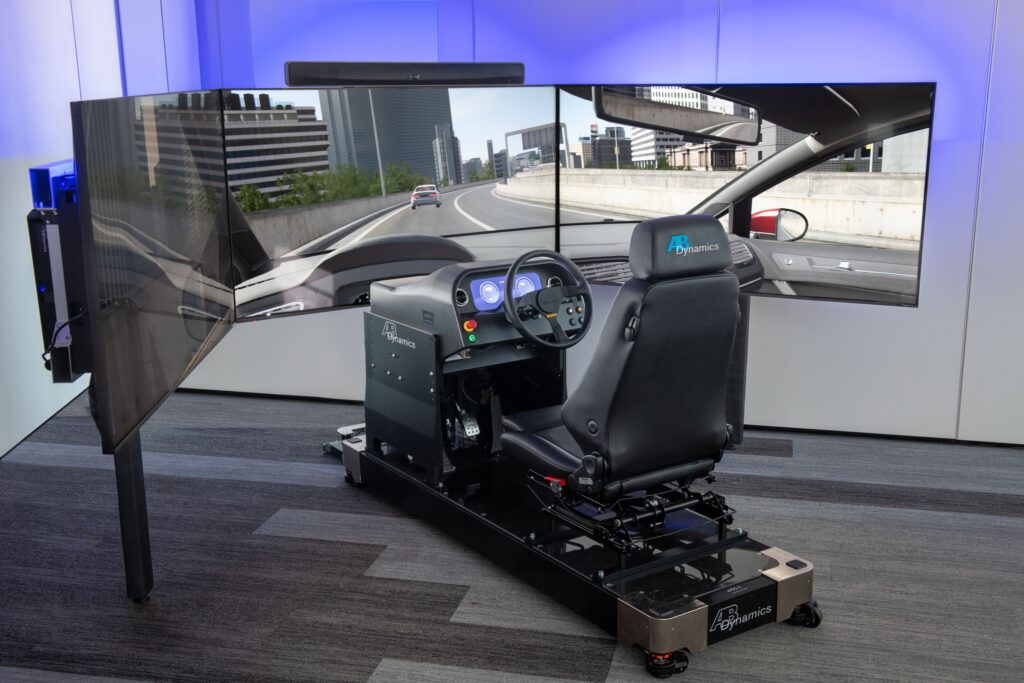
Training simulator for safety drivers
Visitors to the show will also be able to discover how aSR offers a simulator for autonomous driving that allows prospective safety drivers to train using virtual test scenarios. Its solution can be adapted to numerous vehicles and algorithms, enabling operation with generic ADAS/AD behavior or the use of internal software and hardware from R&D.
To set up the digital twin, the aSR simulation framework utilizes a ready-to-use co-simulation approach, which offers the possibility of coupling models of different domains and various software tools.
The simulator then establishes the interface with the driver, which enables test drives with the involvement of the safety driver.
The unique integration of HMI components, such as steering and pedals, not only allows the tuning of its characteristics during runtime, but also a robust superposition of the force feedback, stimulated by the vehicle dynamics simulation and various vehicle components such as the ADAS/AD controllers.
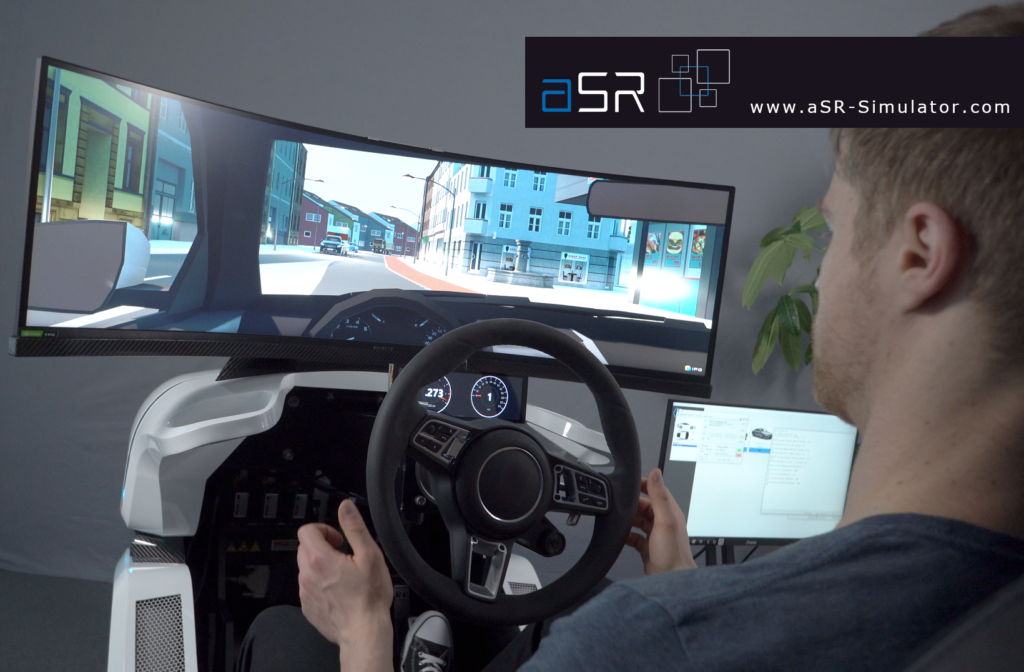
Vehicle dynamics models for autonomy simulation
Mechanical Simulation Corporation will be in Stuttgart to explain more about its recent acquisition by Applied Intuition and how this will allow customers to combine Applied’s simulation and software tools for autonomous vehicle (AV) development with its own vehicle dynamics simulation software.
Known for its flagship product, CarSim, alongside its other products – TruckSim, BikeSim, and SuspensionSim – Mechanical Simulation provides accurate and realistic predictions of real-world vehicle behavior. Through the acquisition, both teams aim to provide the world’s most capable and accurate simulation and validation tools for ADAS and AV development. Their products will make it possible to analyze vehicle performance in complex simulated environments and validate the safety of any ADAS or AV systems.
Visitors will see the benefits of Applied Intuition’s ADAS and AV tools, including comprehensive scenario development, physics-based sensors, procedural pipelines for 3D world creation, closed-loop re-simulation, large-scale cloud simulations in continuous integration to scale, alongside automated scenario-based testing.
The company’s Simian core simulator software package can create scenarios and run virtual tests on the fly, and is equipped with features that enable fast and comprehensive scenario coverage for autonomous vehicle development.
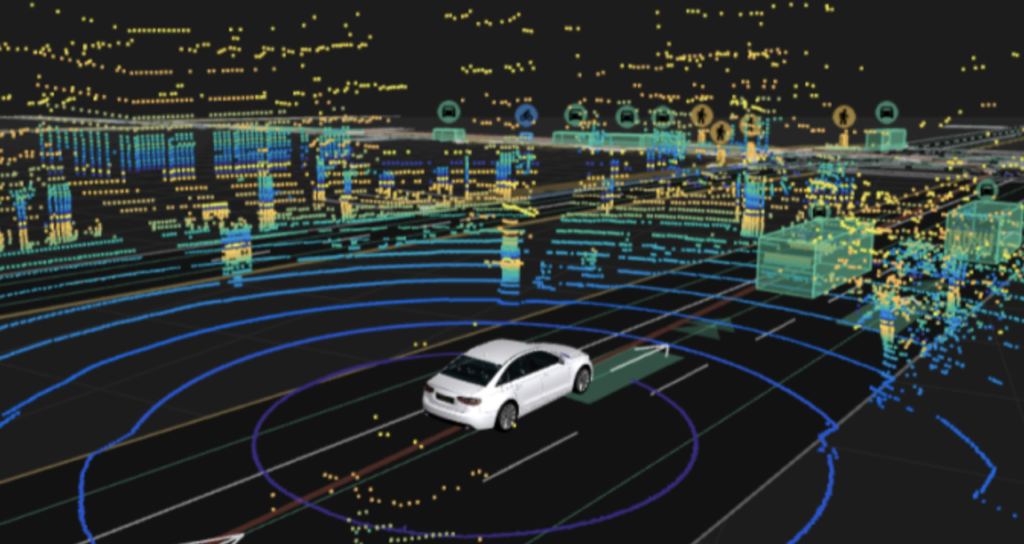
Dedicated conference
You can also hear from world-leading simulation experts at the show’s two dedicated conference tracks: Autonomous Vehicle Test & Development and Autonomous Vehicle AI, Software and Sensor Fusion. One pass (rates apply) grants access to both conference tracks, for a combined program of more than 80 speakers, including experts from Amazon, BMW, Baidu, Einride, the European Commission, IBM, Intel, Mercedes-Benz, Renault and Volvo.
This is a must-attend event for anyone involved in ADAS and AV development – visit the website today to register for your free exhibition entry pass.

